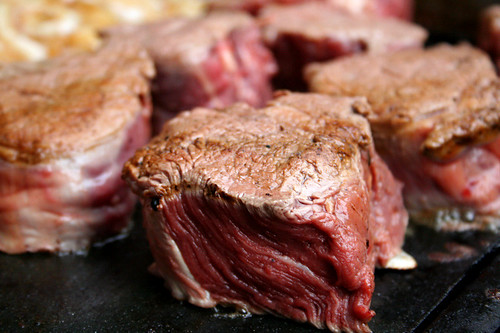Managing your nutritional needs can be tricky, especially as they change as you age. Depending on what stage of life you’re in, you’ll find you need different things – and this can be hard to keep track of. Let’s start with the basics, before looking into what will change depending on where you are.
A Basic Balance
Regardless of gender, a balanced and varied diet is the key to meeting all your nutritional needs. You want to ensure that you’re eating whole grains, healthy fats, dairy, lean protein as well as fruit and vegetables. Obviously, if you’re a vegan or vegetarian you need to make sure to replace dairy with soy milk, and other such equivalents. An ideal plate should be a third starchy food – bread, rice, potatoes, etc; a third fruit and vegetables; around fifteen percent dairy and fifteen percent protein (fish, meat, eggs, etc) and then a small amount of food high in fat or sugar. This standard should remain the same throughout your life so it’s the first thing to fix. If there’s one thing you may need to look elsewhere for though, it’s vitamin D. Pretty much everything else is covered by this balanced diet, but vitamin is mostly gained through sun exposure – something many of us lack. It might be worth adding a supplement in alongside, just to be sure.
Once you’ve got this part of your diet sorted, it’s easier to add in/remove things as you need to. Let’s look at what you need in your diet, and when you need it most.
Iron
Iron is a life-long need – but it’s most importantly while you’re still menstruating. Women are at a higher risk of iron deficiency than men, and so keeping an eye on your iron levels is important. It’s not recommended to take supplements separately for this without consulting a doctor first as it can be hard to balance the levels correctly. However, taking it as part of a multivitamin should be fine. The most efficient way to increase your iron levels, however, is to add more iron-rich foods into your diet, such as red meat, eggs, lentils, soy beans and spinach.
Calcium
This is another one to take throughout your life, but especially during and after the menopause. Women have an increased risk of osteoporosis (weakening of the bones) so you want to make sure you’re getting enough calcium. The obvious way to increase your intake is to drink more milk, but this isn’t practical for everyone. Alternatives include catfish, kale, watercress and almonds. If these sound difficult to add into your diet, there’s always the option of taking a supplement to get up to the recommend daily allowance. You’ll also need to keep an eye on your calcium content whilst breastfeeding.
Folic Acid and Omega-3
These two are the ones you want whilst trying to conceive and throughout your pregnancy. Omega-3 is most easily obtained through fish, though because of the high mercury content in lots of fish, doctors advise against eating too much. You can also get it through cabbage and cauliflower, but it’s worth adding in as a supplement rather than a diet change to reduce risk. Folic acid is found in dark, leafy greens (think spinach) and many vegetables like carrots, celery and brussel sprouts. Many prenatal supplements contain omega-3 and folic acid though, so if you’re taking one it may be worth getting one of these instead.
Vitamin E
Once you’re past the menopause, vitamin E becomes even more vital than before. Its main role is maintaining cell structure – meaning it’s the key to your skin remaining healthy and glowing. In addition, it can help protect against loss of memory, and other age-related mental issues. Whilst not a cure for dementia or Alzheimer’s, also it can help with the standard loss of cognition that comes with age. It’s mostly found in plant oils – such as olive oil, and in nuts, seeds and wheat-germ. Supplements are available, as are topical creams if it’s mostly for the skin benefits.
If you’re finding it difficult to work out what to add in to your diet, it may be worth investing in a more general supplement targeted at your specific needs. For younger women, a multivitamin is a good all-round fix to many issues. If you’re trying to conceive, then prenatal vitamins are the obvious choice. When you’re older, you’ll want to identify the issues more specifically. Is it for painful, stiff joints? Then arthritis supplements are worth looking into. Is it for hot flushes caused by the menopause? Then you’ll want to look at things like evening primrose oil. Remember, pharmacists will know in detail what to recommend, so just ask if you get confused.



Leave a Reply